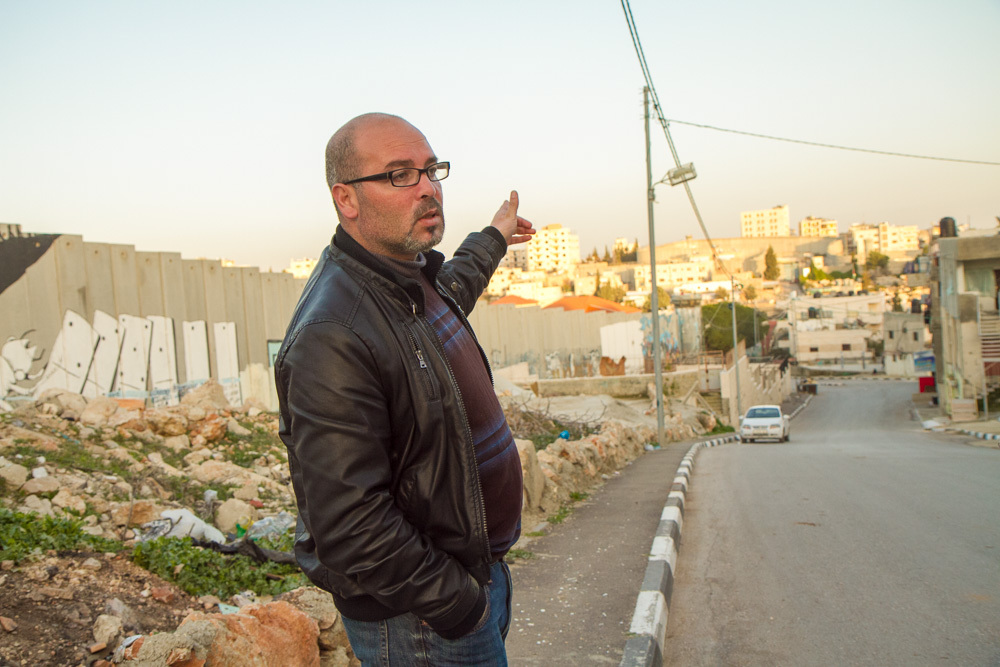When a group of British activists concluded their 147-day walk across Europe and the Middle East to mark the 100th anniversary of the Balfour Declaration, Eastern Mennonite University alumnus Husam Jubran was with them.

The 2004 graduate of the Center for Justice and Peacebuilding, a professional guide and nonviolence trainer based in the West Bank, led the group to their final destination on Nov. 2 — a day both celebrated and condemned worldwide as the first public acknowledgement of British support for the creation of Jewish homeland in Palestine.
Read a Peacebuilder magazine profile of Hasam Jubran.
The “Just Walk to Jerusalem,” organized by the Amos Trust, was a call for “full equal rights for everybody who calls the Holy Land home” and a protest of military occupation of Palestinian territories and the blockade of Gaza, according to a news article published by the Palestinian news agency WAFA. After a four-month-long walk across Europe, the walkers entered Hebron through Jordan “to apologize to the Palestinian people for the … declaration that set the stage for Palestinian dispersion and displacement,” according to the article.
Interviewed for the WAFA coverage, Jubran said that Just Walk participants had “expressed regret and sorrow for the Palestinian people who had to suffer after they were forced out of their homes in a move supported by the British government.”
While in Hebron, the group of 60 witnessed and experienced hardships faced by Palestinians such as restrictions on travel, body searches and harassment, he said.
Raised in the West Bank town of Beit Sahour and active in the First Intifada, Jubran came to EMU in 2002 as a Fulbright Scholar. After graduating with concentrations on facilitation, mediation and nonviolence, he returned to Palestine and developed a conflict analysis and nonviolent organizing training course. For three years beginning in 2008, he continued developing programs through Birzeit University near Ramallah.

Since 2011, Jubran has been a guide for Mejdi Tours, which highlights “diverse cultural, religious, political, and ethnic narratives.” Facilitating tourism, he said during an interview for EMU’s Peacebuilder magazine in 2012, gives him “the leverage of reaching many people.”
